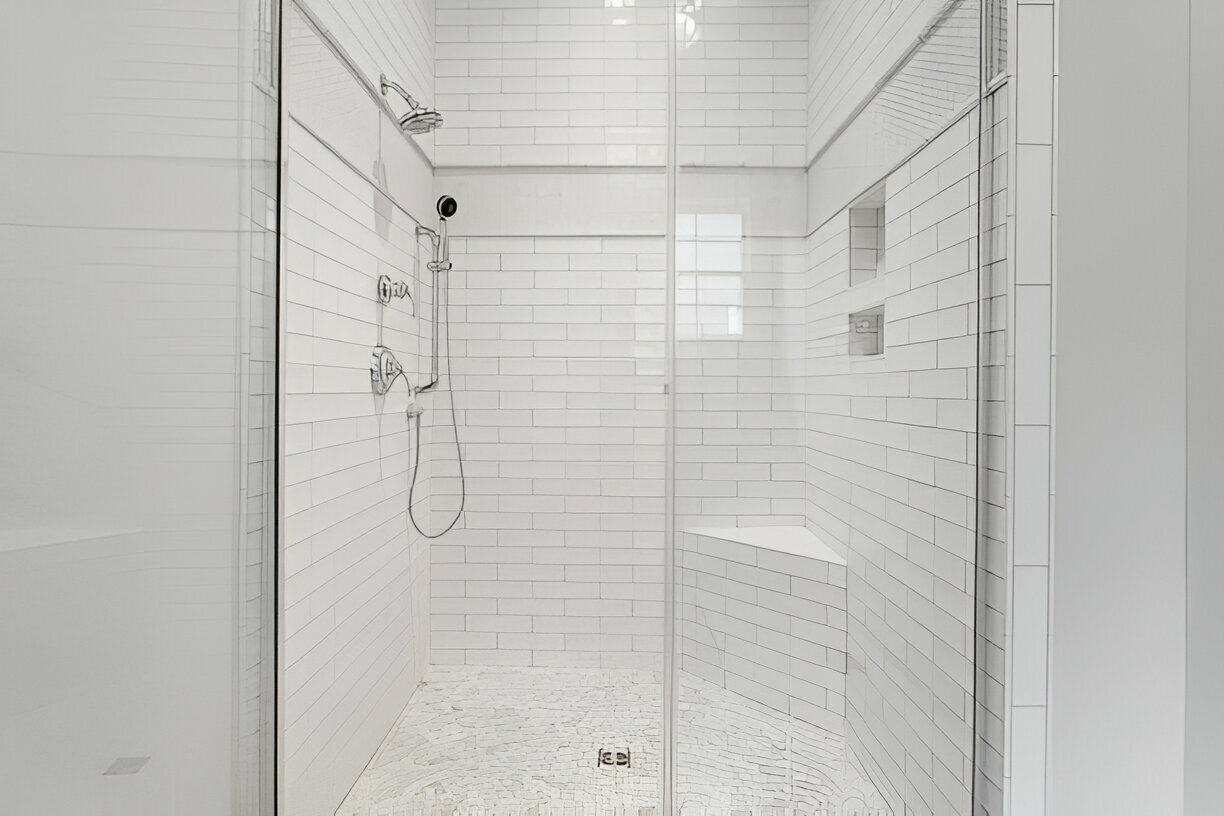Why Choosing the Right Shower Tile Matters
When designing a perfect shower, every detail counts — from the layout of your shower area to the type of wall tile and shower floor tile you choose. However, one of the most critical yet often overlooked factors is selecting the best tile for showers to prevent mold. Bathrooms are naturally humid spaces where water accumulates frequently, especially in the shower area. If the shower tile is not designed to withstand constant exposure to moisture, it can become a breeding ground for mold and mildew, which not only affects the aesthetics but also poses potential health risks for your household.
Tiles play a vital role in maintaining the hygiene and durability of your bathroom space. Mold-resistant shower floor tiles and shower wall materials actively work to prevent moisture from seeping into grout lines, cracks, and porous surfaces, where mold spores thrive. Especially for homeowners considering a full bathroom remodeling, it’s essential to think long-term and invest in materials that support both functionality and style. High-quality tiles offering mold resistance can save you from future costly repairs and health hazards, ensuring your bathroom remains a safe and clean environment for years to come.
European Granite Design, a trusted name in bathroom remodeling and kitchen remodeling, offers a wide range of shower tiles that combine beauty, practicality, and mold resistance. With expertise spanning from custom countertops to full flooring solutions, they understand the importance of choosing the right materials for wet environments like showers. By exploring their extensive natural stone collection and porcelain tiles options, you can select the ideal tile to complement your overall bathroom design while safeguarding against mold.
In addition, homeowners who are renovating not only their bathrooms but also their kitchens might appreciate the cohesive design opportunities offered by European Granite Design’s exotic stone countertops and backsplash tiles. This seamless approach to material selection ensures your home maintains aesthetic harmony across different spaces.
What Causes Mold in Showers?
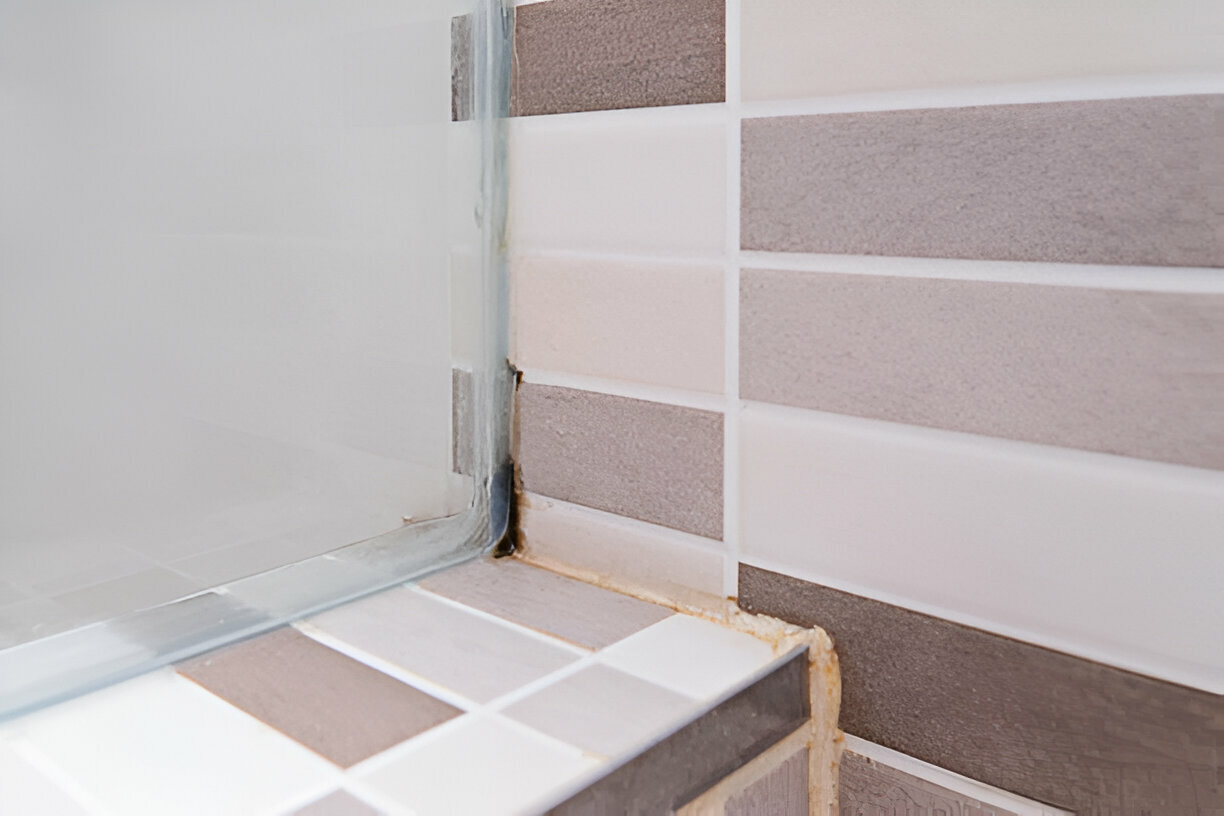
Understanding the root causes of mold in showers is the first step toward effective prevention. Mold requires three key elements to thrive: moisture, warmth, and organic material to feed on. Unfortunately, showers provide the perfect combination of these elements. Inadequate ventilation, improper tile selection, and poor maintenance only accelerate mold growth, especially in grout lines and around shower floor tiles.
After each use, moisture lingers on shower walls and floors, particularly if the tiles are not adequately sealed or are made from porous materials. As soap scum, body oils, and dirt accumulate, they create a nutrient-rich environment for mold spores. This is why water-resistant materials like porcelain tiles or sealed natural stones are a popular choice for mold prevention in shower areas.
Tiles with high porosity, such as unsealed natural stone, absorb moisture more readily, creating hidden pockets of dampness that are difficult to clean. Over time, these hidden damp spots become perfect breeding grounds for mold, even if the surface tiles appear clean. This risk extends beyond the shower floor to shower walls, where improper installation or missing waterproof membranes allow moisture to seep behind the tiles.
Homeowners undertaking a bathroom remodeling project should also evaluate the quality of their ventilation. Even the most water-resistant shower tile cannot prevent mold if steam and humidity have no escape route. Installing proper exhaust fans and maintaining airflow in the bathroom is essential.
European Granite Design offers comprehensive guidance on this during their bathroom remodeling consultations. Whether you’re choosing shower floor tiles or wall tiles, their experts can help you select options that are not only visually appealing but also resistant to moisture, ensuring a perfect shower that remains mold-free over time.
For those in areas like Fairfax or surrounding regions, working with a local expert like European Granite Design ensures that your bathroom’s tile choices align with the climate and maintenance needs specific to your location.
Key Qualities of Mold-Resistant Shower Tiles
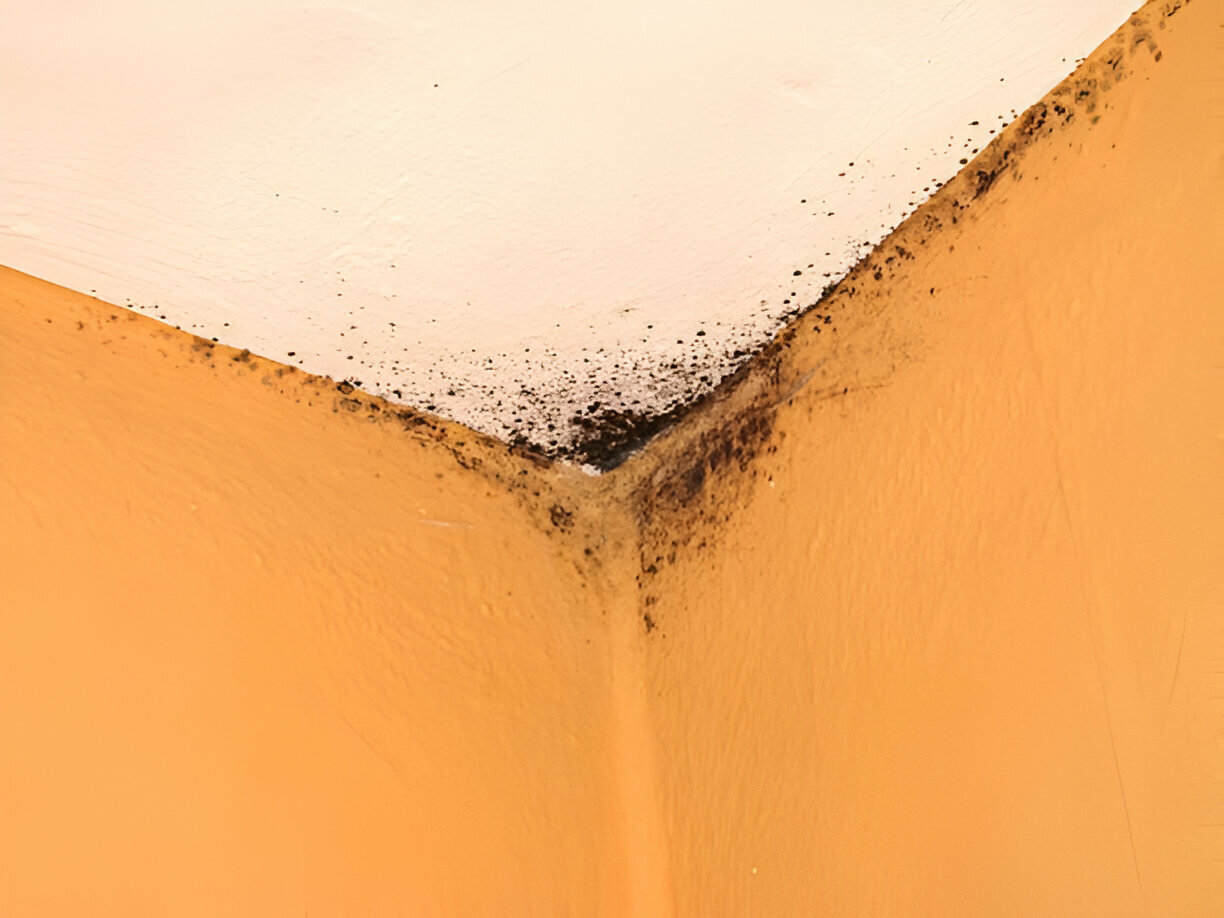
To truly prevent mold in showers, your shower tile must have certain essential characteristics. The combination of material, finish, size, and installation technique plays a critical role in determining whether your shower floor and shower walls will resist mold growth effectively.
1. Low Porosity
The best tile for showers to prevent mold should have minimal water absorption. Porcelain tiles, for example, have extremely low porosity, making them a popular choice for shower floors and shower walls. This inherent resistance to moisture penetration helps prevent mold from finding hidden damp spots to colonize.
Explore the porcelain tile collections at European Granite Design to find options that suit both modern and traditional bathroom designs.
2. Water-Resistant Surface
Beyond the material itself, the surface finish contributes significantly to mold resistance. Glossy ceramic tiles and polished natural stone tiles repel water more effectively than matte or textured surfaces. However, for shower floors, some texture is necessary to provide slip resistance, making mosaic tiles or pebble tiles an excellent option.
For inspiration, visit European Granite Design’s gallery to see real-life examples of mold-resistant showers they have installed.
3. Grout Line Management
The space between shower tiles — the grout lines — is one of the most vulnerable areas for mold. Using epoxy grout, which is non-porous and highly stain-resistant, significantly reduces mold risk. This is especially crucial in showers where moisture exposure is constant.
European Granite Design’s experienced installers ensure that proper grout selection and sealing techniques are applied during every bathroom remodeling project they handle.
4. Smaller Tile Sizes for Floors
In the shower floor specifically, smaller tiles are preferable because they allow for better slope adaptation and drainage. More grout lines create enhanced traction, reducing slips and facilitating better water runoff. This is why mosaic tiles and pebble tiles remain a popular choice for shower floors.
5. Easy-to-Clean Surfaces
Mold prevention isn’t just about water resistance — it’s also about keeping surfaces free of soap scum and dirt. Smooth surfaces like glazed ceramic and polished porcelain make cleaning easier and discourage mold from taking hold.
Pair these tiles with matching backsplash tiles to create a cohesive look that’s also easy to maintain.
6. Proper Installation Techniques
Even the best tiles can fail at preventing mold if they are installed improperly. Ensuring a well-sealed, properly sloped shower floor with a waterproof underlayment is essential. At European Granite Design, professional installation is part of their full-service bathroom remodeling offering, giving homeowners confidence that their shower is protected from day one.
7. Expert Guidance
Working with a company like European Granite Design ensures that every aspect — from tile selection to grout choice — is tailored to your bathroom’s specific needs, your aesthetic preferences, and your long-term maintenance goals.
By understanding and prioritizing these key qualities, you can confidently select shower tiles that not only enhance your bathroom space but also ensure a mold-free, low-maintenance shower area for years to come. Ready to get started? Contact European Granite Design today for expert advice tailored to your bathroom remodeling project.
Top Tile Options for Mold Prevention in Showers
1. Porcelain Tiles: Durable and Water-Resistant
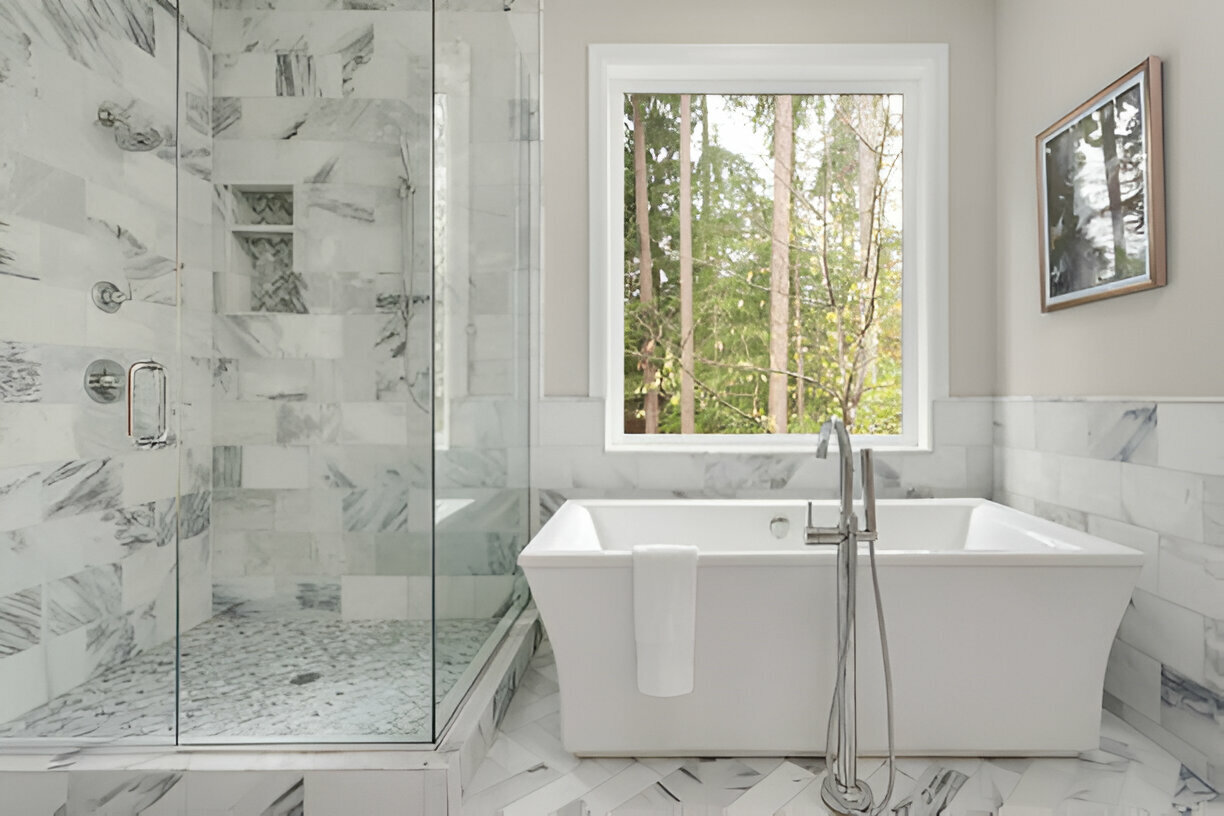
Porcelain tiles stand out as a popular choice for shower areas thanks to their low porosity and high durability. Porcelain is water resistant, making it an excellent choice for shower floors and walls. It’s also resistant to stains, scratches, and mold growth when properly installed with the right grout and sealant.
For homeowners who want to match shower floor tiles with wall tiles, porcelain offers a cohesive, seamless appearance. You can even explore different finishes, from matte for enhanced slip resistance to glossy for a spa-like shine.
Explore natural stone alternatives like natural stones if you want a more organic look with sealed surfaces.
2. Ceramic Tile: Budget-Friendly and Mold-Resistant
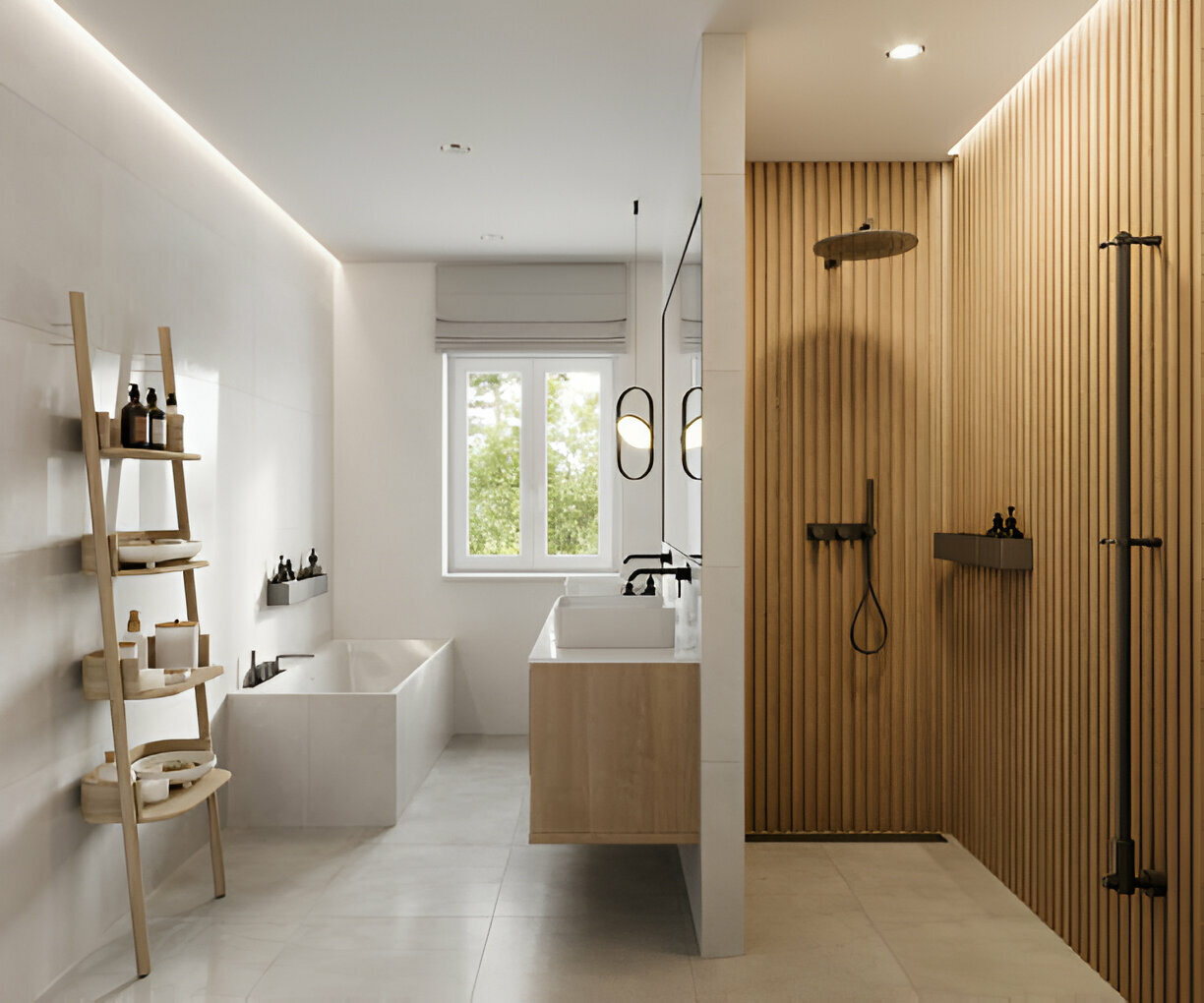
Ceramic tile is another popular choice for shower floors and walls, providing both affordability and effective mold resistance. These tiles come glazed, forming a protective layer that resists moisture penetration. Although ceramic is slightly more porous than porcelain, proper sealing and regular cleaning will keep mold at bay.
For homeowners on a budget, ceramic tile is a smart investment for a beautiful, water-resistant shower area.
3. Mosaic Tiles: Small Size, Big Benefits
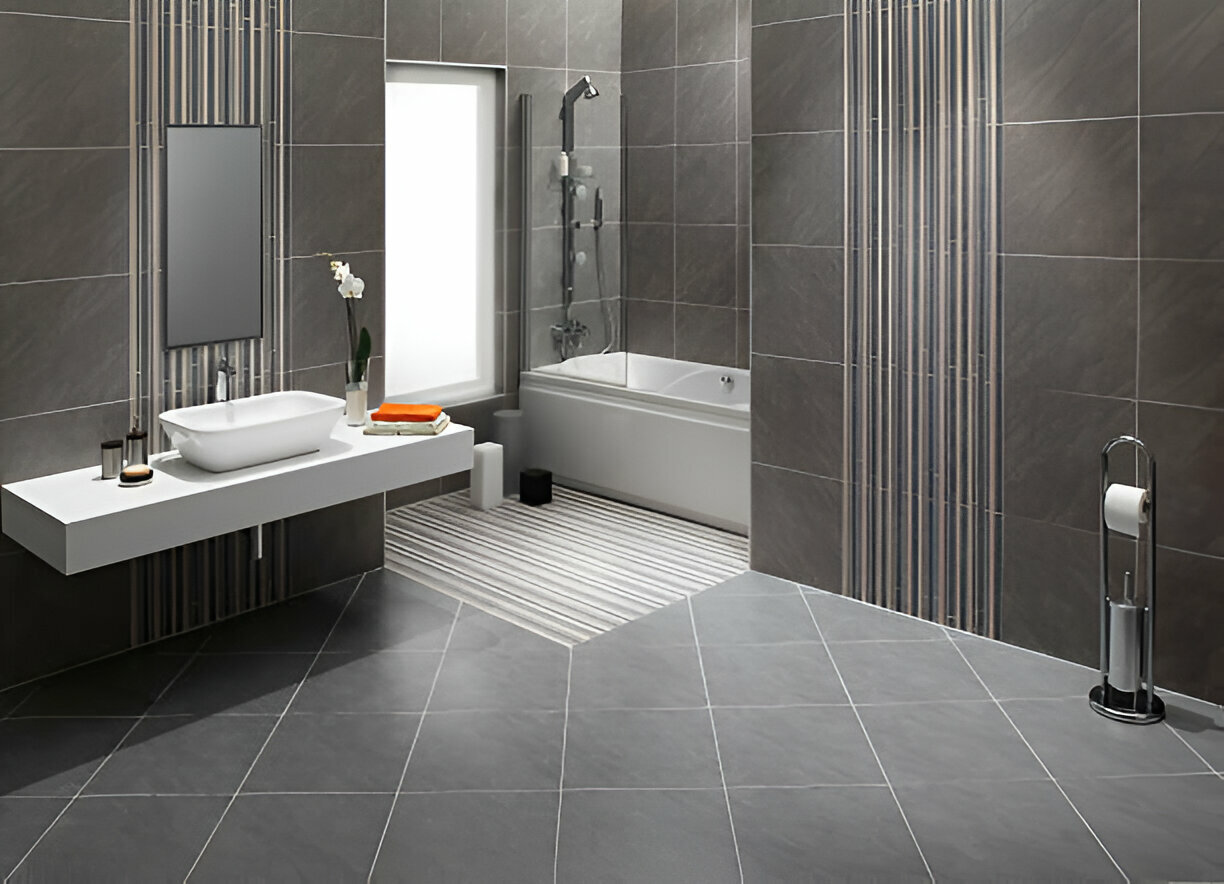
When it comes to shower floors, mosaic tiles are a top contender. Their smaller tile size allows for more grout lines, improving drainage and slip resistance. Plus, with proper grout sealing, mosaic tiles are less likely to foster mold growth. Available in glass, porcelain, and natural stone, mosaic tiles bring both practical and decorative flair to your perfect shower.
4. Natural Stone Tiles: Beautiful but High Maintenance
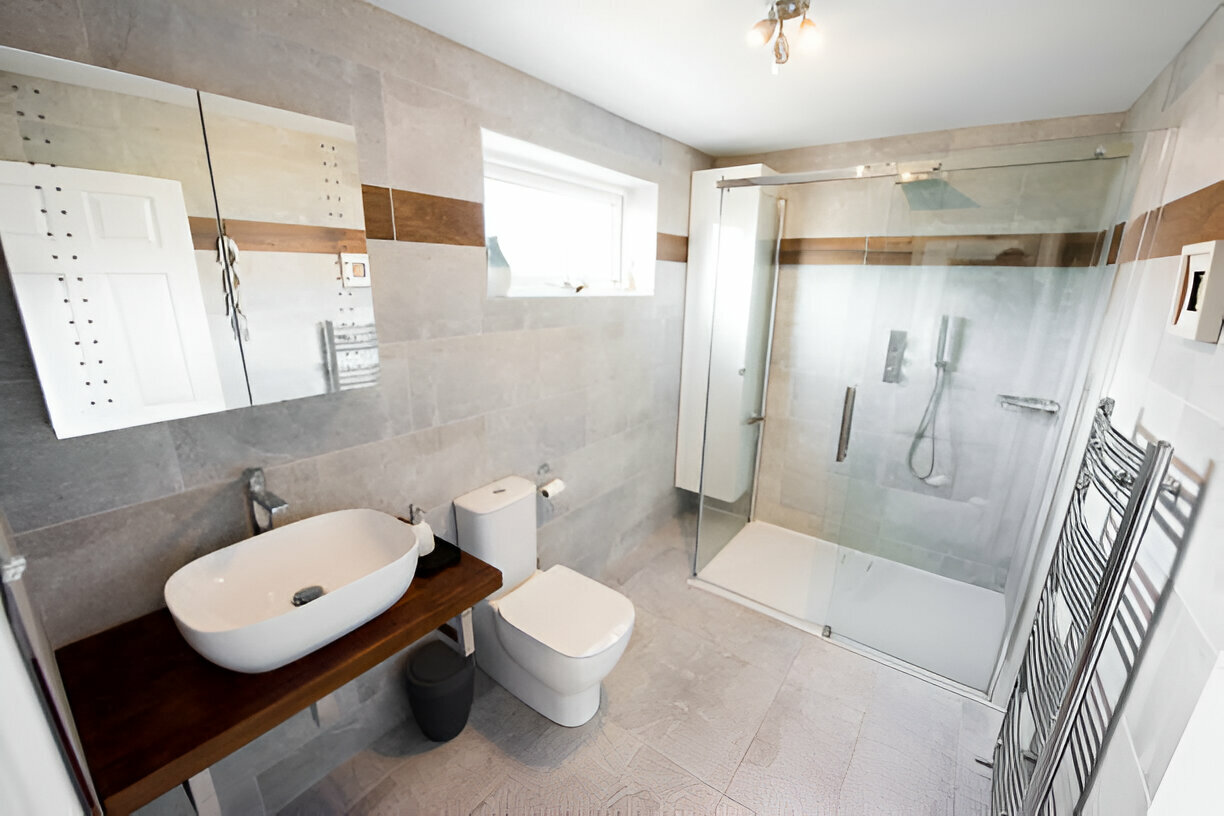
Natural stone tiles such as slate, marble, or travertine add earthy elegance to any bathroom space. However, they are more porous than porcelain or ceramic and require regular sealing to maintain their water-resistant properties. For mold prevention, natural stone is best used in well-ventilated bathrooms with meticulous cleaning habits.
Check out options like marble tiles for luxurious aesthetics combined with proper maintenance.
5. Pebble Tile: Spa-Like Feel with Good Drainage
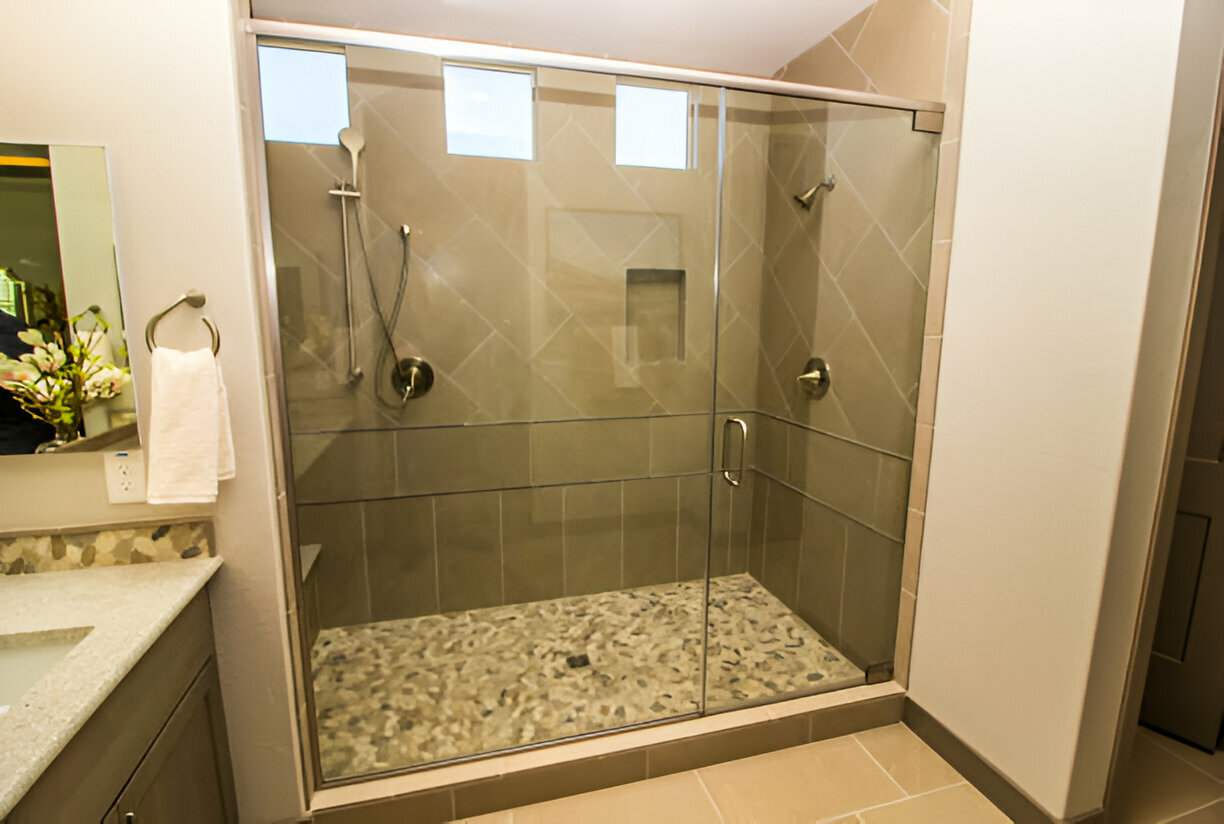
Pebble tiles offer a unique, natural look for shower floors, resembling a tranquil riverbed. The textured surface provides excellent slip resistance, and the numerous grout lines help water drain quickly. As long as the grout is properly sealed, pebble tile can be a mold-resistant, popular choice for creating a spa-like atmosphere.
6. Subway Tile: Timeless and Easy to Clean
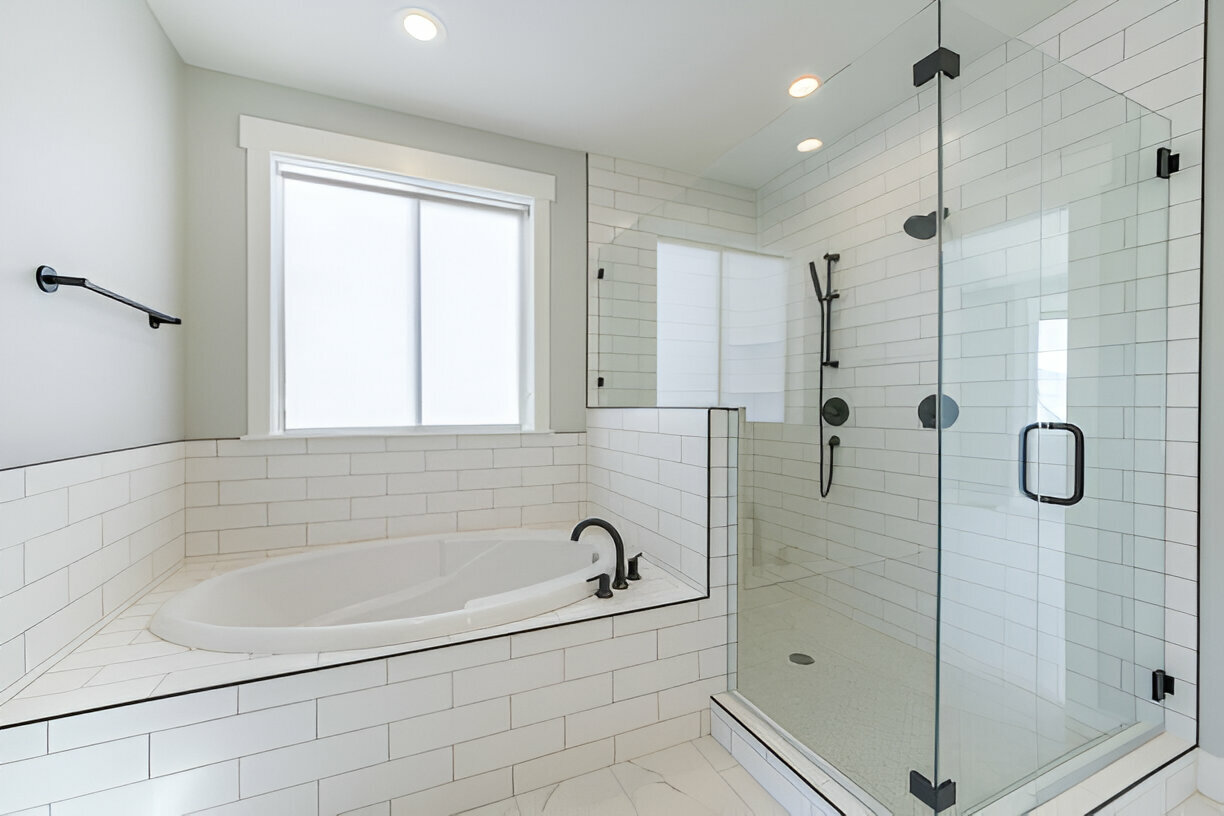
For shower walls, subway tile is a classic, timeless option. Its flat surface makes cleaning easy, and the smooth ceramic glaze resists moisture absorption. When paired with mold-resistant grout, subway tiles create a sleek, low-maintenance shower wall solution.
For coordinating shower designs, consider adding backsplash tiles that complement your subway tile.
Factors That Influence Mold Prevention
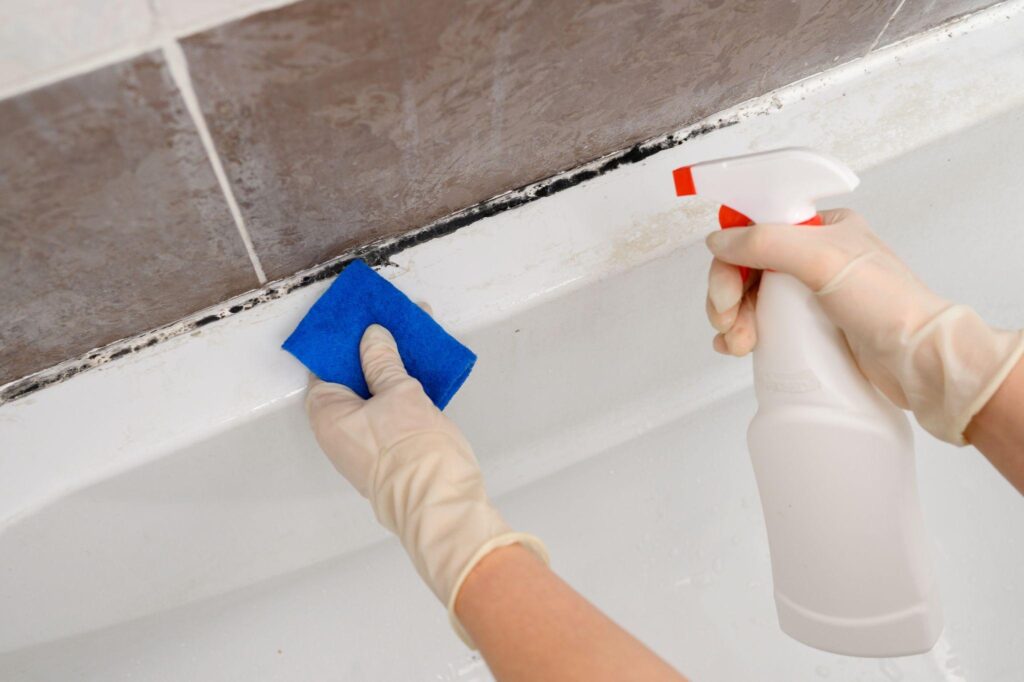
Grout Type and Application
Even with water-resistant tiles, the grout lines between them are vulnerable to moisture infiltration. Epoxy grout, known for its superior resistance to moisture and stains, is a popular choice for mold prevention. Unlike traditional cement grout, epoxy is non-porous and significantly reduces the risk of mold forming.
Tile Size and Layout
When considering choice for shower floor and walls, remember that smaller tiles allow for better contouring to slopes, ensuring proper drainage. However, larger tiles can minimize grout lines, reducing potential mold hotspots. The balance depends on your shower design, cleaning habits, and desired aesthetic.
Proper Ventilation and Maintenance
Even the best tile for showers to prevent mold won’t stay mold-free without proper ventilation and routine maintenance. Use an exhaust fan, squeegee excess water after each use, and clean grout lines regularly with a mild anti-mold cleaner.
Bonus Tips for a Mold-Free Shower
- Install a shower niche with proper drainage to avoid water pooling.
- Choose slip-resistant floor tiles to ensure safety without compromising maintenance ease.
- Use mold-resistant caulk around seams and corners.
- Consider adding a waterproof membrane behind wall tiles during installation.
Combining Function and Style: Tile Trends in 2025
Today’s homeowners want showers that are both beautiful and practical. Combining porcelain tiles on shower walls with pebble tile or mosaic tile on shower floors balances style with functionality. Earth tones, textured finishes, and large-format wall tiles are particularly trending, while timeless subway tile remains a top pick for minimalist bathrooms.
Planning a full renovation? Browse our kitchen remodeling services for inspiration beyond the bathroom.
The best tile for showers to prevent mold depends on your priorities — durability, budget, aesthetics, and maintenance tolerance. For most homeowners, porcelain tiles offer the best combination of mold resistance, style, and affordability. Complement them with proper ventilation, mold-resistant grout, and regular cleaning for a perfect shower that stays fresh and mold-free for years to come.

